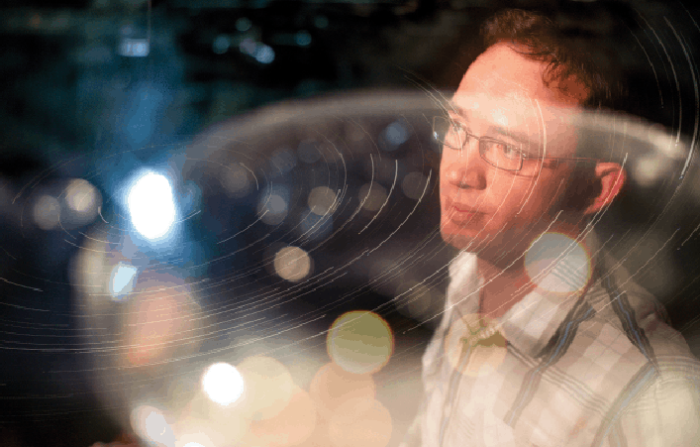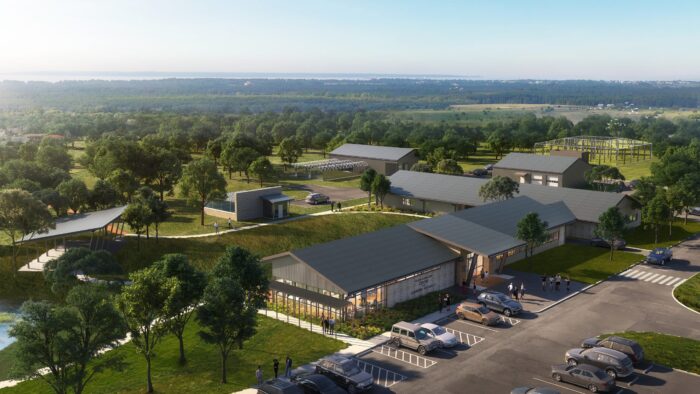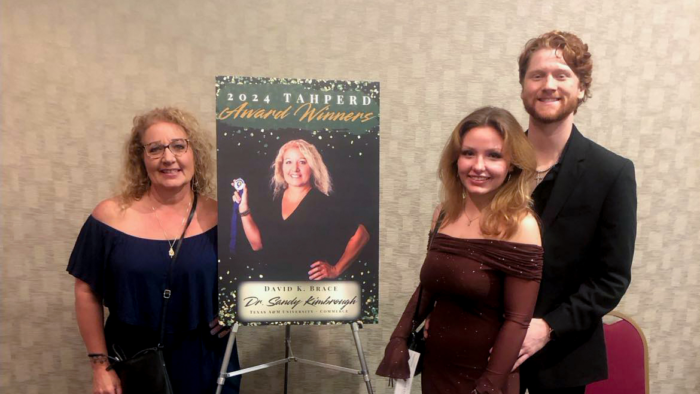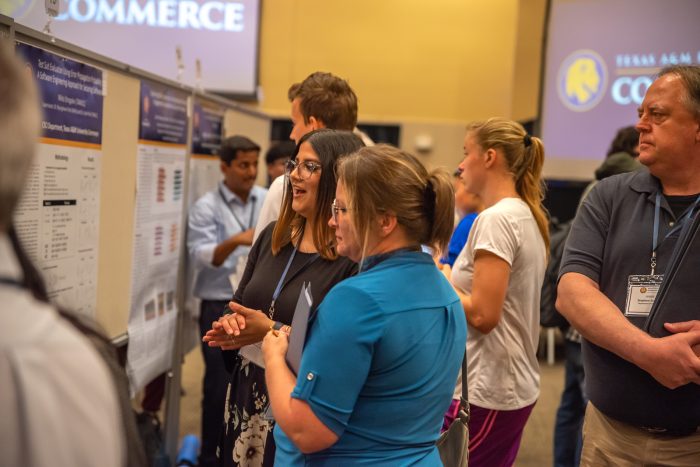Here On Earth

Dr. William G. Newton—assistant professor of physics—spends his time researching nuclear physics, astrophysics and the connections between the two. He is also a great example of faculty extending a hand to students and inviting them to join the research process. For students at A&M-Commerce, the hands-on experiences they receive throughout their studies, as well as mentoring from experts in their field, is a winning combination for those who enter the job market upon graduation and for those who pursue graduate education and an academic career.
One of Newton's mentees and a new graduate from the master's program, Joshua Hooker, is one of those students with an eye toward a career in the academy. He recently began his Ph.D. studies in physics.
“A&M-Commerce is a good place to study physics and astronomy because of the small but impactful size of the department. With the small student/faculty ratio, there is always a chance for a student to get involved with research and plenty of opportunities to get your name out there and learn some valuable tools you can use in the future,” Hooker said.
Scientist and student worked together to produce a paper entitled, “Efficacy of Crustal Superfluid Neutrons in Pulsar Glitch Models.” In short, Newton and Hooker study pulsars, which are very rapidly rotating neutron stars. They are particularly interested in pulsar glitches, a phenomenon in which the star's rotation will increase, eventually settle down and speed back up in the future. No one knows exactly why this happens, but Newton and Hooker are trying to find out.
“The paper was essentially my thesis. Under the direction and decision of Dr. Newton, I wrote the first draft of the paper and made almost all of the graphs that were included within the paper,” Hooker said. “My biggest part was in running the code for the various parameters we wanted to study as well as graphing these finds. With the help of Dr. Newton, I was able to analyze the results to decide on what we need to discuss and show for the paper.”
By studying pulsar glitches, Newton and Hooker can test their theories of the structure of neutron stars in nature's laboratory. Because the conditions inside neutron stars cannot be replicated on Earth, studying them can expand the field's overall knowledge of pulsars as well as filling in knowledge gaps within nuclear physics.
“Because the stars are so dense, the physics that governs how they behave is nuclear physics. Our theories of how neutrons and protons interact with each other are actually still fairly poorly known, especially in systems like neutron stars,” said Newton.
Contributing to a basic knowledge of nuclear and astrophysics is an endeavor with potentially far-reaching implications. This type of study can aid those of us down here on the blue planet in coping with practical problems such as the care of nuclear stockpiles—weapons currently unused that have to be cared for.
“We want to understand nature better,”said Newton.
What better reason is there for research? To understand more and reach further is the drive that allows professors and students to work seamlessly together to reach a common goal.
To listen to our conversation with Dr. Newton and learn more about his research, click here. View his faculty video profile below.
More Research News
View All Research News
Saving the Quail: The Center for Gamebird Research at East Texas A&M is Restoring a Valuable Texas Resource
The Lyon Center for Gamebird Research at East Texas A&M University is poised to tackle the gamebird population crisis head-on.

Department of Health and Human Performance Shines at Annual Industry Conference
Faculty and students from the department received awards and presented workshops at the premier industry conference.

Showcasing Scholarship: Highlights from TAMUC’s Annual Research Symposium
TAMUC students present innovative research projects to the university community and industry leaders. Texas A&M University-Commerce hosted its Annual Research Symposi...


